Omicron at Rutgers
Published:
As the Fall semester comes to an end, the world is being assaulted by a new COVID variant: Omicron.
We’re still learning about Omicron, but the first thing that jumps out is that it is astonishingly transmissible. New York recently set a record 21,000+ cases in a single day. The previous peak was around 20,000 in January, when under 10% of the population had received any vaccination. Now at a 70% vaccination rate, when we would expect the spread to be slower, we’re smashing records.
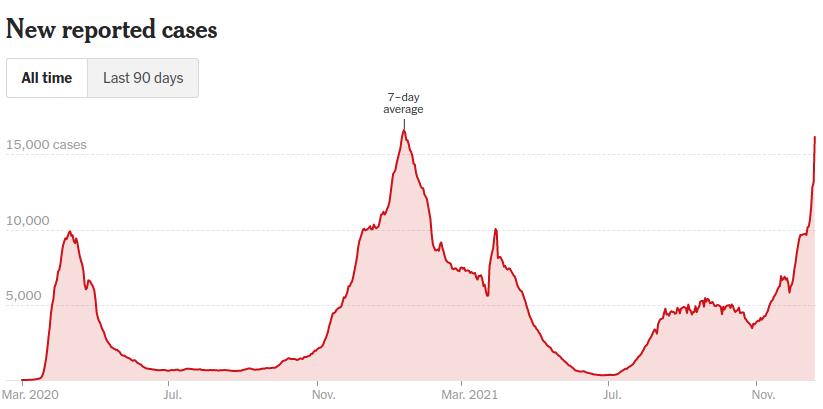 (COVID cases in New York, New York
Times)
(COVID cases in New York, New York
Times)
I’m feeling a strong sense of deja vu. Dozens of NBA players suddenly tested positive causing the league to postpone a week’s worth of games, Cornell shut down its campus after a COVID outbreak, and Harvard has committed to a partially-online January. It’s like last year all over again. Everyone is freaking out, every day a sports league or school shuts down, and we’re all watching cases rise to higher and higher peaks.
This all raises the obvious thought: What will Rutgers do in the Spring? With cases skyrocketing, will the university panic and move everything online again?
Everything rides on three questions: How transmissible is Omicron, how severe is the average Omicron infection for the vaccinated, and when will we know answers to these questions?
The first answer is bad. If we are in person, then we will likely see a spike in cases. The Rutgers Testing Program Dashboard hinted at this last week, when the proportion of positive tests in New Brunswick jumped to a record 5.09%.
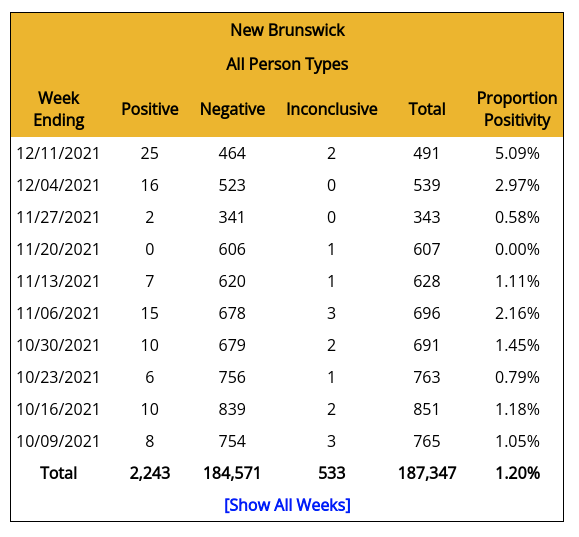
How severe will those cases be? The data here is murkier. It ranges from “less severe than Delta” to “about as severe as Delta,” even among the vaccinated. Four countries to watch are:
- Denmark
- United Kingdom
- Norway
- South Africa (where Omicron was first detected)
Initial reports out of South Africa indicated that infections were less severe. Reports from Denmark seem mixed. State epidemiologists suggest that those without boosters are just as vulnerable to Omicron as the unvaccinated, and hospitalization levels are rising quickly:
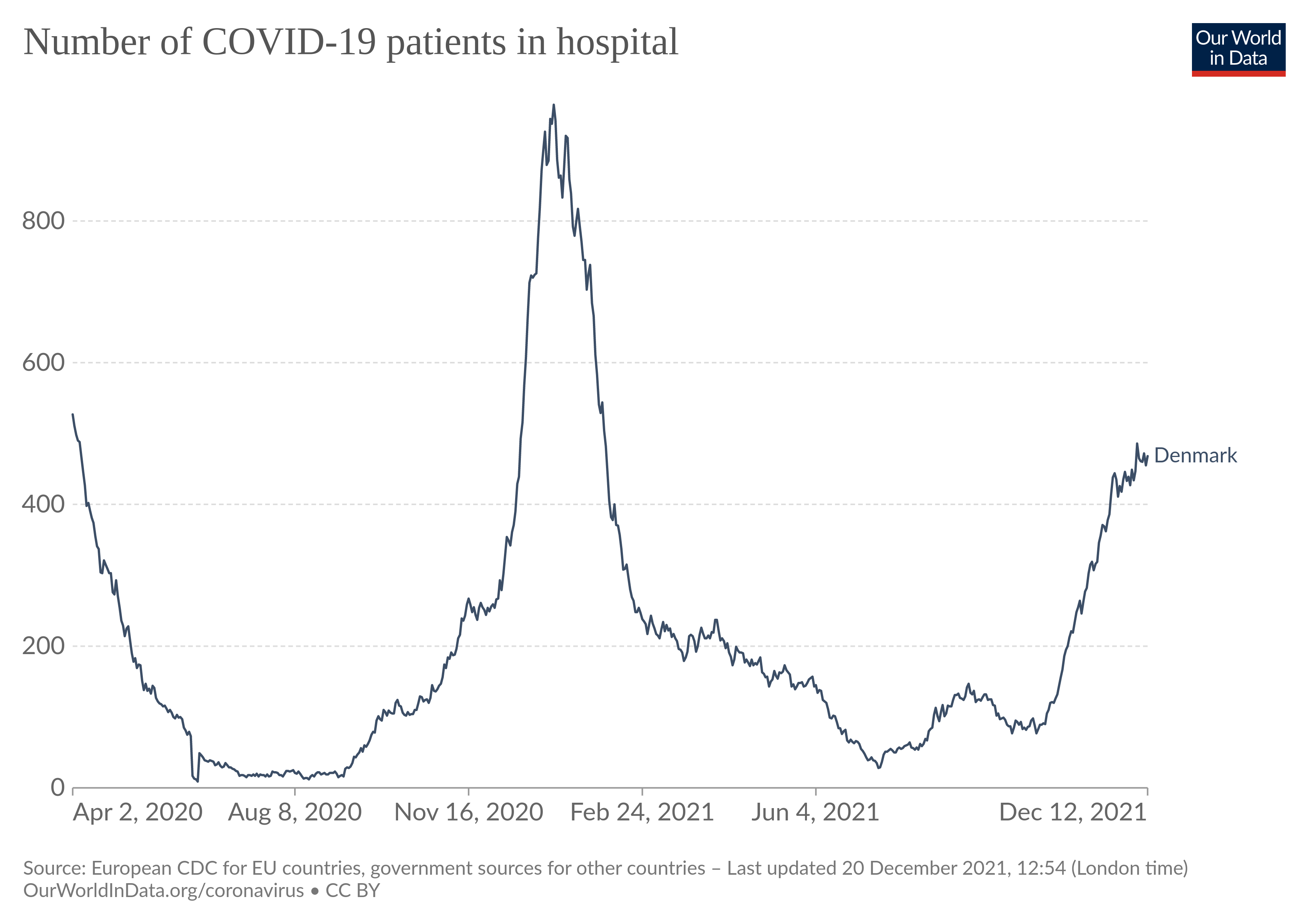
On the other hand, all of these countries have very low death rates compared to their high case numbers:
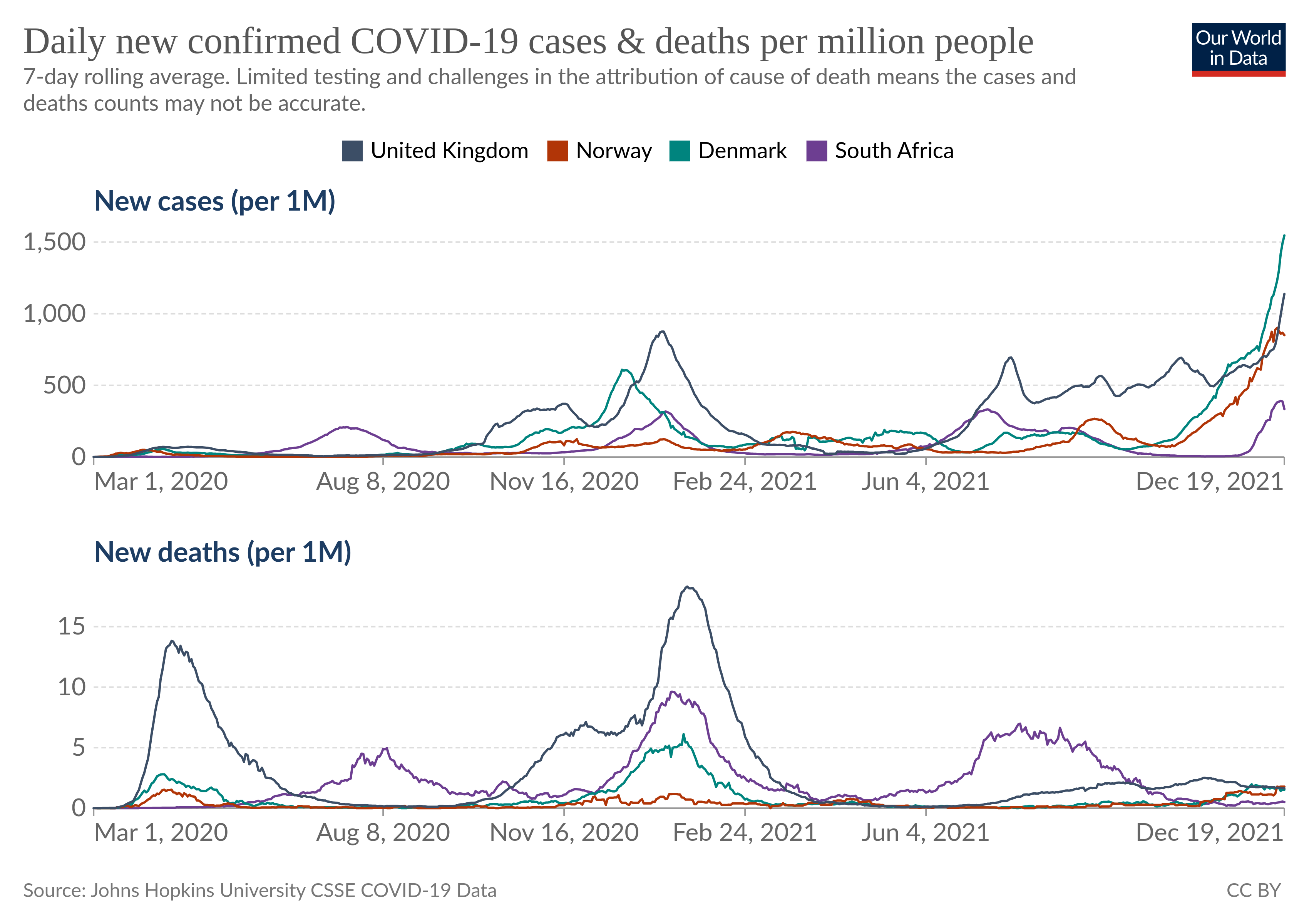
And the CDC projects that Omicron now accounts for around 92% of all sequenced cases New York / New Jersey area, but hospitalization rates in New York City are low:
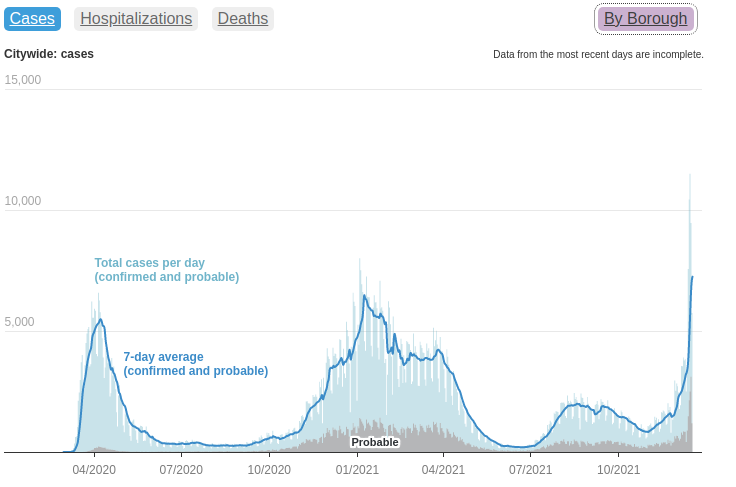
But deaths and hospitalizations will lag behind cases.
Put together, it is unclear how severe Omicron will be, even among the fully vaccinated. The good news is that Moderna and Pfizer both report that their boosters are effective against Omicron. The boosted population is likely protected from serious illness.
This brings us to the third question: When will we know how severe Omicron is? We are just waiting on the CDC, the Danes, the Brits, or anyone to collect more data. It might be a week or more before we have better answers.
What should the administration do? They have an unclear picture, an uncertain timeline to learn more, and need to make a decision in the next month or so, if not sooner.
As scary as these case counts look, we cannot overstate how awful it would be to shut Rutgers down for another semester.
Online college is terrible. Other than the obvious problems with online learning, college is meant to be in-person. Classroom experience is trivial compared to experiences outside the classroom, surrounded by your peers. These cannot be replicated in a Zoom breakout room while you lay in bed.
Rutgers functioned exceedingly well this Fall. There was an indoor mask mandate, a vaccine requirement, and some restrictions on large, indoor gatherings. They all worked. As far as I can tell there has not been a significant number of seriously ill students, faculty, or staff. That includes the Delta surge.
We had the tools to fight Delta, and we have the tools to fight Omicron. Rutgers has COVID tests, plenty of booster shots, and contact tracers. If we want to be in the best shape possible for the Spring, then we should bring all of these to bear. Concretely, we should do something like the following:
- Open testing for all members of the community (not just the unvaccinated).
- Encourage or require all students on campus to receive a booster shot.
We completed an in-person Fall semester with few hiccups, and unless the data gets remarkably worse, I believe we can do it again in the Spring if we act accordingly.
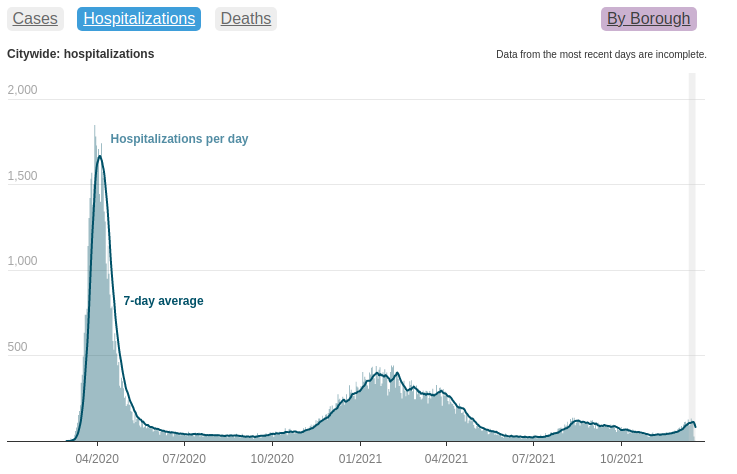 (
(